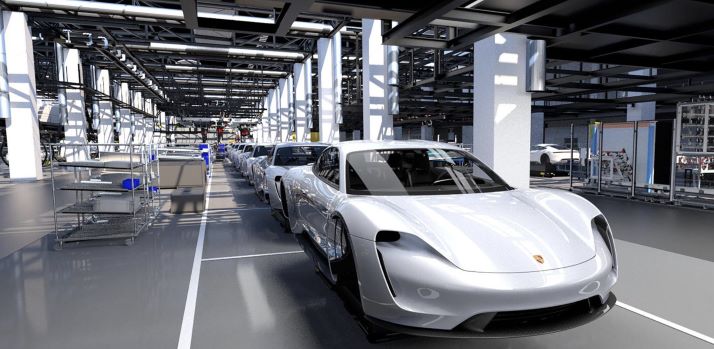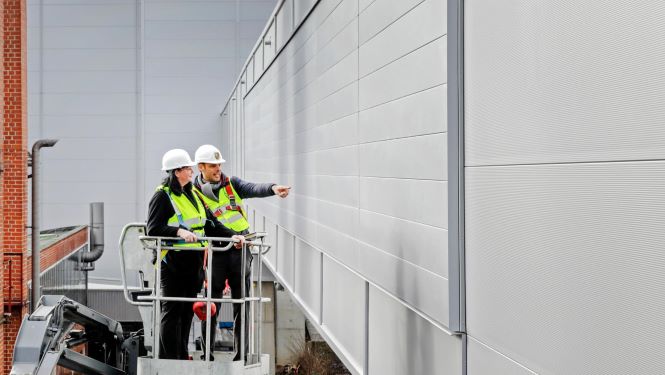

German automobile manufacturer, Porsche, which specializes in high-performance sports cars, SUVs and sedans, says that it is building a new “Zero Impact Factory” at the Porsche headquarters in Stuttgart-Zuffenhausen, Germany to build its first Electric Porsche Car.
Porsche says that the facade of its new factory that will build the Taycan, its first all-electric vehicle, is coated with a material able to absorb nitrogen dioxide – a pollutant diesel cars were actually emitting.
The German automaker built the facade of the plant made of “aluminium coated with titanium dioxide”, which “acts as a catalyst and breaks down the absorbed pollutant particles into the harmless substances water and nitrate when exposed to sunlight and with only low air humidity.”


Albrecht Reimold, Member of the Executive Board responsible for Production and Logistics at Porsche AG, commented on the newly deployed pilot project:
Sustainability is a big picture that is made up of many individual elements, we are therefore continuously thinking about the measures that we can implement to ensure greater sustainability in our actions – throughout the entire value chain. A new factory is currently being built at the Porsche headquarters in Stuttgart-Zuffenhausen for the first electric Porsche, which will make its debut towards the end of the year. Production of the Porsche Taycan will be CO2-neutral. We are consistently pursuing our objective of sports car production completely without any ecological footprint.
Porsche says that the main pollutant that it absorbs is nitrogen dioxide, which is ironically a pollutant that its diesel vehicles with emission cheating devices were emitting. The factory is expected to start producing the Taycan toward the end of the year.
[related_post]
This Facade design is already performing the work of ten trees in an area with a size of just ten parking spaces. “If the evaluation of the results confirms our expectations, nothing stands in the way of using nitrogen oxide-absorbing surface technology on other buildings and surfaces,” says Albrecht Reimold.
Porsche is reportedly doubling the planned production capacity for the Taycan, its first all-electric vehicle, to a massive 40,000 units per year. At 40,000 units per year, it would become one of the company’s largest vehicle programs behind its other SUVs like the Cayenne and Macan.
picture credit: Porsche
In a significant move toward advancing green energy and industrial growth in the state, Himachal…
Golabl chemical conglomerate BASF has announced that its now offering the world’s first biomass-balanced polyethersulfone…
In a crucial stint to bolster the biogas sector and sustainable dairying in the country,…
TotalEnergies SE has received approval to proceed with its Middlebrook solar and battery project in…
Andhra Pradesh Chief Minister Chandrababu Naidu has inaugurated the Rs 1,000-crore green hydrogen plant of…
The BITS Pilani has developed an innovative solution for managing landfill leachate, domestic septage, and…